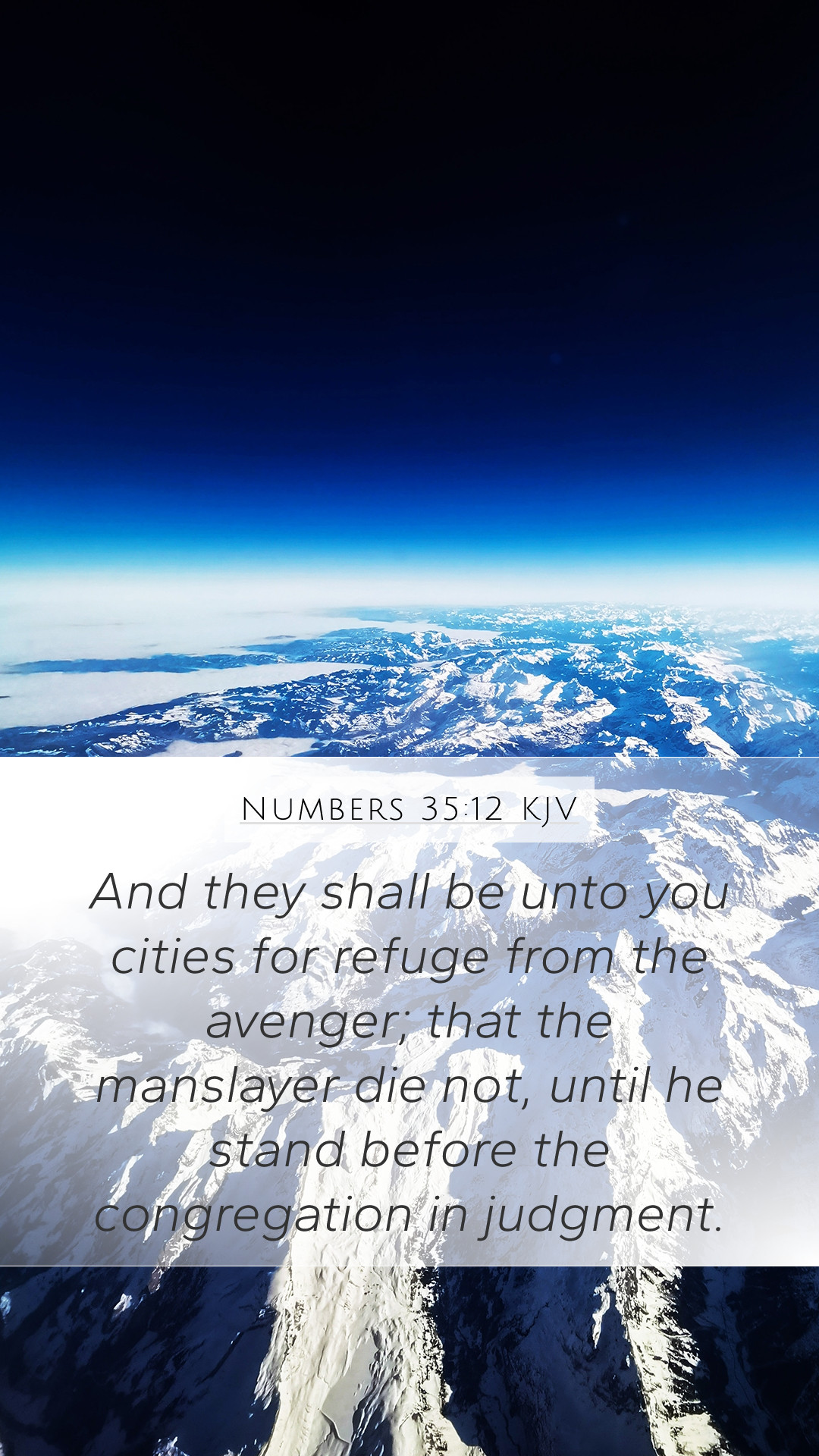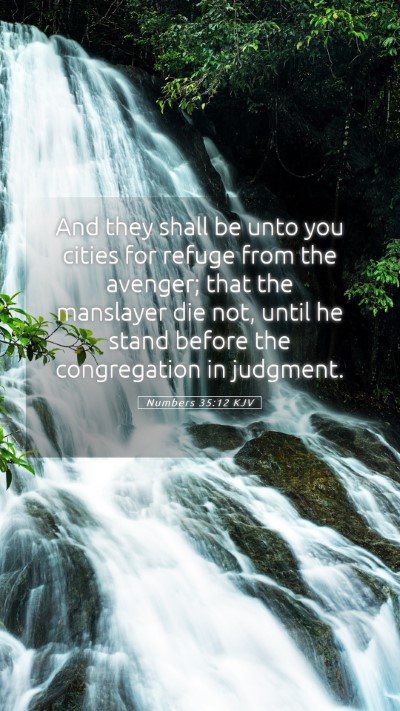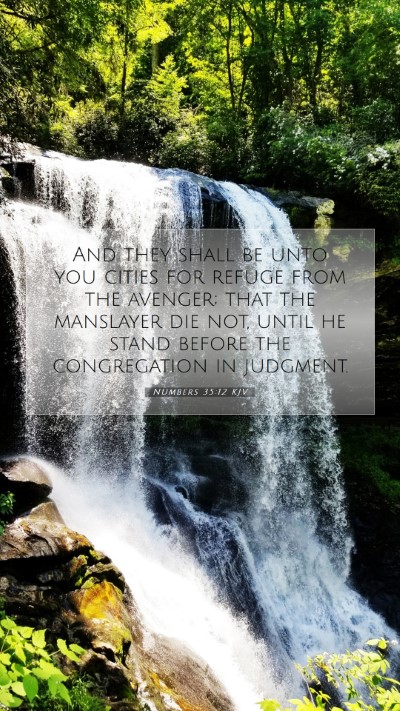Understanding Numbers 35:12
Numbers 35:12 states, "And they shall be unto you cities for refuge from the avenger; that the manslayer die not, until he stand before the congregation in judgment." This verse plays an essential role in the understanding of justice and mercy in the biblical context. It establishes a system of cities of refuge where those who accidentally kill someone can seek safety and await trial. Below is a summary of various commentaries that delve into the meaning and implications of this verse.
Bible Verse Interpretations
This verse illustrates a fundamental principle in the ancient judicial system concerning unintentional manslaughter. The necessity of a fair trial is evident, where one’s fate is decided by the congregation, highlighting the importance of community judgment in administering justice.
Insights from Commentaries
-
Matthew Henry:
Matthew Henry emphasizes the mercy displayed in providing cities of refuge. He notes that the provision serves as a reminder of God’s justice tempered with grace, allowing for a protective measure for the innocent who may otherwise face unwarranted revenge from family members of the victim.
-
Albert Barnes:
Albert Barnes discusses the legal framework established by this verse. He interprets the cities as legal instruments designed to prevent the escalation of violence and bring order. By mandating that the manslayer must appear before the congregation, Barnes underscores the significance of communal involvement in justice and accountability.
-
Adam Clarke:
Adam Clarke approaches the verse from a historical perspective, explaining the cultural context of the time. He elaborates on the concept of blood vengeance prevalent in ancient societies and how the cities of refuge were a divine provision to mitigate blood feuds and promote social stability.
Scriptural Analysis
Numbers 35:12 serves as a pivotal passage in the study of biblical law. The city of refuge symbolizes not just physical safety but also the opportunity for reconciliation and justice. It reflects a profound understanding that while sins may occur, systems exist within society to redeem and restore individuals. This verse can be analyzed from multiple theological and ethical angles:
- Justice vs. Mercy: The interplay between justice and mercy resonates throughout this chapter. The cities of refuge represent a sanctuary where justice can be administered fairly.
- Community Judgment: The necessity of standing before the congregation emphasizes accountability within a community context, indicative of a system that values collective wisdom and fairness.
- Divine Provision: This verse showcases God’s provision for human error, revealing a compassionate approach to human failings.
Applications in Daily Life
Numbers 35:12 can provide profound insights into how we understand justice and grace in our personal lives:
- Seeking Refuge: Just as the cities provided refuge, individuals today can seek safe spaces amidst their mistakes, allowing for personal growth and restoration.
- Community Involvement: Engaging in community can lead to better conflict resolution and understanding, fostering environments where justice can thrive.
- Mediation and Forgiveness: The need for mediation in conflicts today resonates with the principles found in this scripture, urging individuals to seek peaceful resolutions.
Cross References
This verse connects with several other biblical texts that enhance its meaning:
- Deuteronomy 19:1-13 - Additional laws regarding cities of refuge.
- Joshua 20:1-9 - The establishment of cities of refuge as a fulfillment of the command.
- Exodus 21:12-14 - Laws concerning manslayers and the avenger of blood.
Conclusion
In summary, Numbers 35:12 encapsulates critical themes of divine justice and mercy, community accountability, and the importance of fair trials. The insights from public domain commentaries shed light on the multifaceted interpretations of this scripture, making it a vital passage for understanding biblical exegesis. It encourages believers to reflect on the principles of refuge, justice, and the divine framework established for reconciliation in human relationships.


